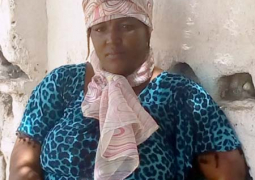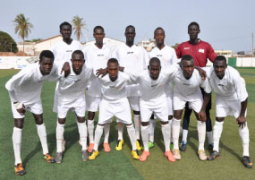As part of activities marking World TB Day 2010, the Ministry of Health and Social Welfare, in collaboration with the Medical Research Council (MRC) and World Health Organisation Gambia office recently commemorated TB awareness campaign in Soma, Lower River Region (LRR).
The event started from the Soma Customs Post with a march past of students and voluntary organizations to the Local Government Council, where distinguish personalities, health personnel and members of the community gathered to grace the occasion.
Speaking on the occasion, the Regional Health Director, for Lower River Region Jankoba Jabbi reminded the gathering of the prevalence of the TB and gave statistics of cases in his region. He urged communities to take an active role to stop TB not only in LRR but the Gambia as a whole.
The WHO representative, Dr. Thomas Sukwa, in a touching statement said that the day is meant to remind the whole world of the menace that TB continues to exert on human populations despite the existence of effective treatment and other control interventions. He stated that TB still remains a disease of major public health concern in the African Region.
Dr. Sukwa revealed that the African Region has the highest TB notification rate per 100, 000 population and to date, only 47% of the estimated new TB cases in the population are identified. Of these, he added only about 79% complete their treatment. He also noted with concern that the African region accounted for 22% of new TB cases every year. He expressed concern that only 12 countries in the region reached the internationally-recommended targets of identification of at least 70% new cases and 85% treatment success rate in 2008. Dr Sukwa added that it was unfortunate that The Gambia did not achieve either of these recommended targets.
Dr, Sukwa, also highlighted the importance of co-infections of TB and HIV. "In the region, 35% of TB cases are also infected with HIV, making TB one of the highest killers of adults living with HIV,” he said, adding that the spread of TB has been complicated by the emergence of drug-resistant strains, known as Multi drug Resistant TB (MDR-TB) and Extensively Drug Resistant TB (XDR-TB). He further stated that it is gratifying to note that the Gambia to date has not reported drug resistant strains unlike 33 other countries in the region.
He commended the MRC for providing the capacity for surveillance of drug-resistant strains in the country. The WHO representative also dilated on the factors that impede accelerated scale up of TB control in the African Region as:
- The weakness of the health systems in countries;
- Government funding for TB control activities is generally inadequate;
- Quality-assured TB laboratory networks are scarce, thus limiting access to diagnostic capacity;
- Recording and reporting systems for monitoring disease trends and assessing the impact of interventions and financial flows are weak.
He urged countries to find innovative ways to accelerate efforts towards greater community involvement and increased research with a view to ensuring better and accurate diagnostic methods and access to treatment, including treatment of drug-resistant cases.
He called on national authorities to mobilize additional resources for TB control from government, and other partners, including those in the private sector and tasked the general public to take responsibility for reporting at a health facility for examination and treatment when they develop cough or are otherwise unwell.
In conclusion, Dr. Thomas Sukwa reaffirmed WHO and partners for their continued support in research for the development of new diagnostic tools and medicines to speed up case identification and shorten the duration of treatment. He said he is positive that together, we can make a big difference, and that through our collective efforts, TB will cease to be a public health problem in Africa.
He ended his statement saying, "Together, let us all use greater innovation to move TB this year."
Hon. Alhagie Cham, Minister for Communication, Information, and Information Technology, who delivered a statement on behalf of the Minister of Health and
Social Welfare, Dr. Abubacarr Gaye highlighted the tremendous improvement in the control of TB in the country in recent years. He added that the TB programme began implementing the DOTS strategy well before it was recommended and adopted by the World Health Organization as the most effective strategy for TB control.
He reaffirmed government's commitment through the Ministry of Health and Social Welfare to consolidate and improve efforts geared toward TB control in the country. He called on all to partake in the fight against TB, because, as he puts it, "it is a disease that does not discriminate and affects all strata of society - affecting the young and old, rich and poor, men and women."
He commended the health care workers, particularly those engaged in the fight against the dreadful disease of TB, with special thanks to Global Fund to Fight AIDS, TB and Malaria, KNCV, MRC and WHO for their wavering support and partnership in TB control.
In attendance were the Permanent Secretary, Ministry of Health and Social Welfare Mr. Yaya Sirreh Jallow, the Deputy Governor LRR, Mr. Wally Sanneh, representative of Medical Research Council (MRC) and a host of other dignitaries.
Traditional communicators entertained the gathering with drama and songs, while
TB messages were disseminated.




